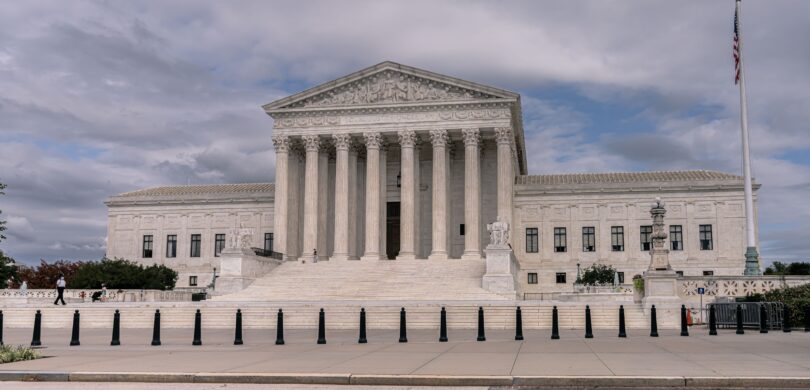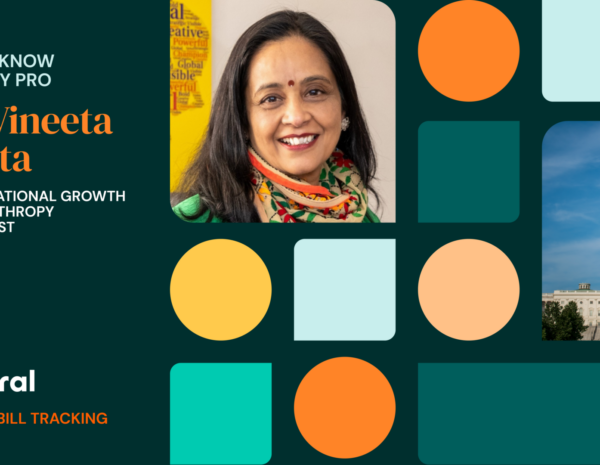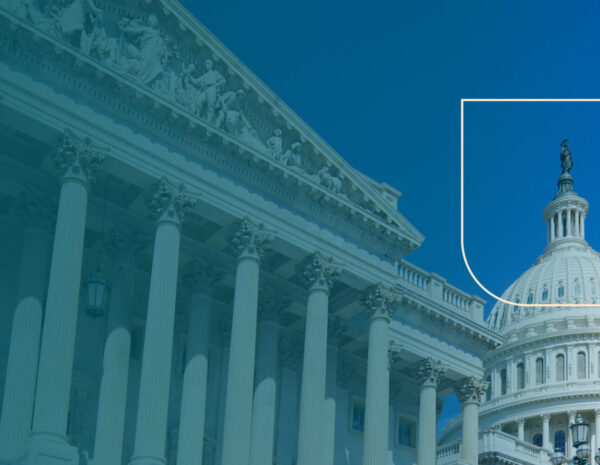The Supreme Court’s 2023 session was by all means unprecedented. It’s been a couple of months since the major decisions from this year’s docket were published. In this time, the Plural policy team has analyzed the Court’s decisions, and their impacts on American people. Many major laws, practices, and rights were reconstructed in this Supreme Court term. It’s essential to look at the effects we have felt thus far, and investigate where policy move in response.
Major Supreme Court Decisions in 2023
For the Supreme Court of the United States’ term of 2022-2023, the court issued decisions in 58 cases. The seven detailed in this article were by far the most contested and debated. The Court holds the authority to affect every individual in the United States. This power makes understanding their decisions essential, from average citizens to policymakers.
Affirmative Action
The two Supreme Court cases brought by Students for Fair Action, Inc. against Harvard and UNC, respectively, were decided on June 29th, 2023. The six to three decision effectively overturned affirmative action. Affirmative action has been present and legal in the United States since the 1960s. It refers to a set of procedures designed to:
- Eliminate unlawful discrimination among applicants
- Remedy the results of such prior discrimination
- Prevent discrimination in the future
In recent decades, affirmative action has been largely affiliated with higher education. Many academic institutions holistically consider race in admissions decisions. Learn more about affirmative action here.
Students for Fair Admission, Inc. v. President and Fellows of Harvard College argued that affirmative action is not race-neutral. Therefore, affirmative action is discriminatory in nature. The majority opinion determined that the college admissions process should instead be color-blind. Justices Jackson, Sotomayor, and Kagan authored dissenting opinions. Their opinions contextualized affirmative action within our nation’s history. They also analyzed the threats that might arise from straying from precedent.
In her dissent, Justice Jackson wrote:
“With let-them-eat-cake obliviousness, today, the majority pulls the ripcord and announces ‘colorblindness for all’ by legal fiat, but deeming race irrelevant in law does not make it so in life.”
Justice Ketanji Brown Jackson
Student Loans
Biden, President of the United States v. Nebraska et al. was decided on June 30th, 2023. The six to three decision prevented the distribution of student loan forgiveness nationwide.
In making its decision, the Court looked to the Higher Education Relief Opportunities for Students (HEROES) Act of 2003. It ruled that the Secretary of Education does not have the authority to establish a student loan forgiveness program. The program proposed by the Secretary would cancel approximately $430 billion in debt. This cancellation would affect nearly all student loan borrowers in the United States. Learn more here.
Justices Kagan, Sotomayor, and Jackson again authored a dissenting opinion. They asserted that the HEROES Act gives discretion to the Secretary of Education to “give the relief that was needed, in the form he deemed most appropriate, to counteract the effects of a national emergency on borrowers’ capacity to repay.” Therefore, the actions made to cancel student loan payments was authorized.
This decision impacted every student loan borrower in the United States. Despite negative effects, the Court’s decision did leave opportunities for Congress to act. The Court’s decision did not state that the loan forgiveness program was unconstitutional. Rather, it stated that the Secretary of Education did not have the authority to act. This nuance leaves room for Congress to broaden the scope of the HEROES act or otherwise allow for a loan forgiveness program.
Religious Freedom and Employment
Groff v. Dejoy was decided on June 29th, 2023. The nine to zero decision increased religious freedoms for workers within their places of employment.
Gerald Groff is a U.S. Postal Service employee who is a Christian. Due to his religious beliefs, Groff refused to work on Sundays. In response, the USPS offered to find employees to swap shifts with him. However, on numerous occasions, no co-worker would swap, and Groff did not work. The USPS subsequently fired him. The Court determined that the USPS failed to reasonably accommodate Groff’s religious beliefs.
Prior to this decision, employers had to prove they faced an “undue burden” in accommodating religious beliefs. Title VII now holds employers to a higher standard. In order to decline accommodations, employers must show that accommodating religious beliefs would result in substantially increased costs.
Religious freedom advocates and religious communities heralded this decision as a win. It was one of few unanimous decisions in this Supreme Court term.
LGBTQIA+ Rights
303 Creative LLC v. Elenis was decided on June 30th, 2023. The six to three decision reduced the protected class status of LGBTQ+ consumers. In doing so, the case effectively increased religious freedom for businesses.
Lorie Smith is the owner and founder of 303 Creative LLC, a graphic design business in Colorado. Smith wanted to expand her business to include wedding websites. However, she opposed same-sex marriage on religious grounds. As such, she did not want to provide services for same-sex couples.
Colorado’s Anti-Discrimination Act prohibits businesses from discriminating on the basis of sexual orientation. Smith sued the state of Colorado, arguing that the law violated her freedom of speech.
The Court agreed with Smith, ruling that states cannot force individuals to carry out messaging that conflicts with their religious beliefs. To do so would be a breach of their freedom of speech.
Once again, three Justices joined in a dissenting opinion on this case. Justices Sotomayor, Kagan, and Jackson wrote:
Five years ago, this Court recognized the “general rule” that religious and philosophical objections to gay marriage “do not allow business owners and other actors in the economy and society to deny protected persons equal access to goods and services…”. Instead today, the Court, for the first time in its history, grants a business open to the public a constitutional right to refuse to serve members of a protected class.
Justices Sonia Sotomayor, Elena Kagan, and Ketanji Brown Jackson
Federal Elections
Moore v. Harper was decided on June 27th, 2023 in a six to three decision. The Court ruled that, under the Federal Elections Clause, state legislatures do not have exclusive and independent authority to set federal election rules.
This case came before the Supreme Court after the 2020 Census was completed in North Carolina. It argued that congressional redistricting resulted in a partisan gerrymandered state map. The map was challenged once in state court. The state court asked the state legislature to propose another map. However, the re-done map was highly similar to the first. The State Speaker of the House petitioned the Supreme Court to review the map.
The Court ruled against the State Speaker and the gerrymandered congressional map. It affirmed that the gerrymandered map would result in a discriminatory election. The Court stated that the state legislature must again recreate the congressional map.
This decision was closely watched, especially given the upcoming 2024 elections. Many advocates deemed this case a success for voting rights and election integrity.
Race and Redistricting
Merrill v. Milligan was decided on June 8th, 2023 in a five to four decision. The Court ruled that Alabama’s redistricting map violated the Voting Rights Act.
Like Moore vs. Harper, this case was a response to redistricting following the 2020 Census. In Alabama’s newly-redistricted map, only one district had a majority of black residents. The case alleged that black voters were systematically silenced in Alabama. As such, it also alleged that the redistricting map allowed for racial discrimination.
The Court affirmed that the Alabama state map did allow for racial discrimination. The majority and minority opinions were not split along usual lines. In the majority were Justices Sotomayor, Kagan, Jackson, Roberts, and Kavanaugh. By contrast, dissenting justices included were Justices Thomas, Alito, Gorsuch, and Barrett.
Native Americans
Haaland v. Brackeen, was decided on June 15th, 2023. The seven to two decision effectively upheld the Indian Child Welfare Act.
The Indian Child Welfare Act aims to keep Native American children connected to their families and culture. This case arose from three separate child custody proceedings governed by the Act. The case alleged that the Indian Child Welfare Act is racially discriminatory. It also posited that the federal government should not involve itself in state issues. The Supreme Court dismissed both arguments.
Tribal leaders hailed the ruling as “a major victory for Native tribes, children, and the future of our culture and heritage.” They also lauded the Court’s decision as “a broad affirmation of the rule of law and the basic constitutional principles surrounding relationships between Congress and tribal nations.” Learn more here.
Justice Barrett authored the majority opinion in this case. Her opinion emphasized the necessity of righting past wrongs committed against Native tribes and the importance of keeping Native American children connected to their tribe and culture.
The Makeup of the Supreme Court
According to the Constitution, the Supreme Court is to be apolitical. Justices are to be non-political actors, involving themselves only in Constitutional interpretation.
This charge has always been difficult. Supreme Court Justices are appointed by sitting Presidents. Appointment proceedings are, at times, politically charged.
As of August 2023, the current Supreme Court Justices are:
- Chief Justice John G. Roberts, appointed by President George W. Bush, Republican
- Associate Justice Clarence Thomas, appointed by President George W. Bush, Republican
- Associate Justice Samuel A. Alito, appointed by George W. Bush, Republican
- Associate Justice Sonia Sotomayor, appointed by President Barack Obama, Democrat
- Associate Justice Elena Kagan, appointed by President Barack Obama, Democrat
- Associate Justice Neil Gorsuch, appointed by President Donald Trump, Republican
- Associate Justice Brett Kavanaugh, appointed by President Donald Trump, Republican
- Associate Justice Amy Coney Barrett, appointed by President Donald Trump, Republican
- Associate Justice Ketanji Brown Jackson, appointed by President Joe Biden, Democrat
Justices often vote along the party lines of the President by which they were appointed. Throughout the 2022-2023 Supreme Court term, decisions were often divided six to three. This split aligns with the six Republican-appointed justices and three Democrat-appointed justices.
The conservative-leaning Supreme Court has led to strong backlash, especially among young, progressive Americans. Many Americans question the validity of the Supreme Court’s power.
President Biden’s Response to Supreme Court 2023 Decisions
Following affirmative action decisions, Lawyers for Civil Rights sued Harvard University. The suit alleged that Harvard violates the Civil Rights Act by prioritizing legacy applicants. 70% of Harvard’s donor-related and legacy applicants are white. Being a legacy student makes an applicant roughly six times more likely to be admitted. Some universities have ended legacy admissions, including Johns Hopkins University and Amherst College. President Biden stated that legacy admissions “expand privilege instead of opportunity.”
Following the Biden, President of the United States v. Nebraska et al. decision on student debt relief, President Biden promised to deliver debt relief through other means. The White House has turned to the Higher Education Act of 1965 to restore the student debt relief program. They have also created a 12-month repayment plan, protecting borrowers from the threat of bad credit due to missed payments. Democratic members of Congress have also made student debt cancellation a legislative priority.
Looking Ahead to 2024
In many recent cases, public opinion did not align with the decisions made by the Court. Americans strongly support affirmative action, economic investment in historically disadvantaged communities, and abortion rights. It remains to be seen how public outrage surrounding these issues will come into play in 2024’s Presidential election. However, state elections on abortion measures may be an early harbinger.
Explore Free Public Policy Resources
What the One Big Beautiful Bill Act Means: for Education
On July 4th, President Trump signed H.R. 1, the One Big Beautiful Bill Act, into law. The 330-page act contains provisions that will reshape nearly every sector of the American economy and society. The rushed passage and sweeping scope of H.R. 1 have left many wondering: What’s actually in the bill and how will it […]
Plural Asks: Get to Know a Policy Pro, Dr. Vineeta Gupta
In this series, you’ll learn about the career paths of impactful public policy shapers and champions. Dr. Vineeta Gupta, Organizational Growth & Philanthropy Strategist | Systems Change Leader Human rights advocacy is about shifting power, holding systems accountable, and building a society where dignity, equity, and freedom, and justice are ensured irrespective of race, gender, […]
Understanding the Byrd Rule: How Senate Rules Will Change the One Big Beautiful Bill Act
It is safe to say we have entered a new phase of President Trump’s second presidency. The chaotic first four months was largely defined by an unprecedented flurry of executive action, Elon Musk’s efforts to shrink the federal bureaucracy, and rising geopolitical tensions resulting from the administration’s trade policies. The centerpiece of this next phase […]



